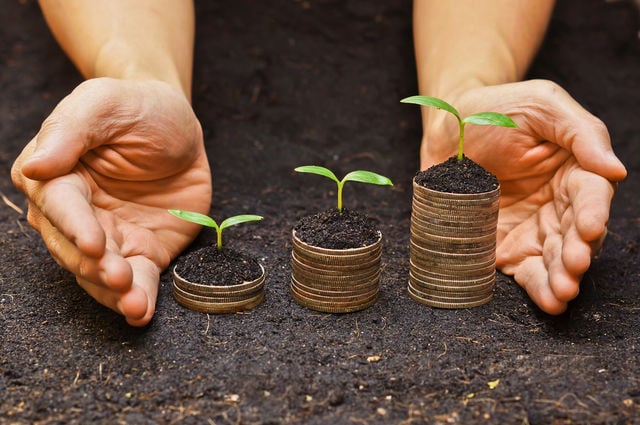Driving Resiliency and Sustainability in Hospitality: Five Priorities for 2021
23 experts shared their view
Recovery, resilience, recalibration, or bouncing back are a few examples of keywords that are at the center of any discussion surrounding the hospitality industry's economic prospects this past year. However uncertain the economic future may be, major crises of earth systems are unabated to date. While similarities exist between resiliency and sustainability (i.e. both concepts refer to the state of a system or organization over time in response to instabilities), there are notable differences, and conflicts, in the two concepts (i.e. achieving short-term economic resiliency at the expense of socio-environmental wellbeing). Looking forward, all eyes are on resiliency (growth!) in hospitality but how do we decouple growth from impacts, most notably carbon emissions? How do we ensure that sustainability is a component of resiliency (or vice versa)? What are the five priorities the hospitality industry should set to tackle resiliency and sustainability at the same time in 2021?
In a year of disruption and change, one positive we can take is how the Covid-19 pandemic has galvanized both business and public around matters right across the ESG agenda. In creating this time of collective reassessment and reprioritization, this global health crisis has focused the spotlight on areas like climate change, social norms, injustice, and the most vulnerable in society. Across all stakeholder groups, we have seen a renewed energy behind efforts to recover and move forward from the pandemic in a responsible way – in turn, helping build resilience.
1. Collaborate with government and industry towards common goals
For a long time, businesses have been the ones ahead of government, driving the agenda for positive environmental and social change. More recently, there has been a shift in how governments are aligning to create policy and action in a measurable and meaningful way. Whether it's the UK's ten-point plan for a green recovery or the ambitious carbon pledges we've seen in China, we hope the common goals that now exist for business and government will create greater cohesion and opportunities to work together – particularly when it comes to urgent action in the face of the global climate crisis, which requires a concerted and coordinated effort from all.
2. Greater emphasis on reporting and disclosures
With increased government action and investor interest around ESG matters, there has been a shift in the importance of consistent and robust ESG reporting, with disclosures such as the task force for climate-related financial disclosures (TCFD) now becoming legal requirements in some countries. This greater consistency in how businesses report is an advantage for stakeholders looking to invest, assess or work with us, as there is a deeper understanding of the risks we face from climate change, – and plans to mitigate – what our strong points are, and where there is room for improvement. It leads to better business decisions and company activities, and it also means increased onus at Board level, creating a greater level of governance and change driven from the top.
3. Embrace technology to support safety and sustainability
In some ways, the significant challenges that have arisen due to the pandemic have also provided an opportunity for our industry to understand how we can evolve some of the traditional ways we have operated. For example, with digital check-in and check-out, or the introduction of apps and QR codes to access information, the removal of printed items offers big wins for natural resource use. We've realized the important role that technology has played in recovery and, more broadly, that it will continue to play in enabling more sustainable operations. It will still be important for us to get the basics right, by using software to measure and report on the impact of core hotel operations in areas of energy, carbon, water, and waste. With a baseline understanding of our overall environmental impact, we're better enabling our hotels to identify those innovations that are most effective for them on-property. Solutions, for example, such as smart machinery, artificial intelligence, or building management systems, that can move the sustainability needle and make the greatest impact on a grassroots basis.
4. Support communities and ecosystems for resilience
We can't underestimate the impact the pandemic has had on the welfare of communities, of which hotels sit at the core. Our industry is an important driver of its local ecosystem and it leads to growth in a number of ways, from local spending, sourcing, and employment, right through to providing a place for people to do business. The recovery of the hotel industry is tightly connected to how these ecosystems can thrive again. It's therefore important that we advocate for, protect and promote our industry as an employer, and as a business to invest in – not only to benefit our recovery but also local communities and economies as a source of growth and resilience.
5. Do what's right for people in a people industry
For the hospitality industry, there's no getting away from the fact that people are at its heart, and inevitably it's people who have been hugely affected this year, whether through illness, increased uncertainty and stress, or adjustment in their work and personal lives. One positive outcome from Covid-19 is that it has helped put the conversation around personal and mental health firmly in the mainstream spotlight. There is a growing emphasis on the responsibility that companies have to ensure their people are supported and able to manage their own wellness. After all, it's people who deliver hospitality day in and day out, and their empowerment and wellbeing are key.


